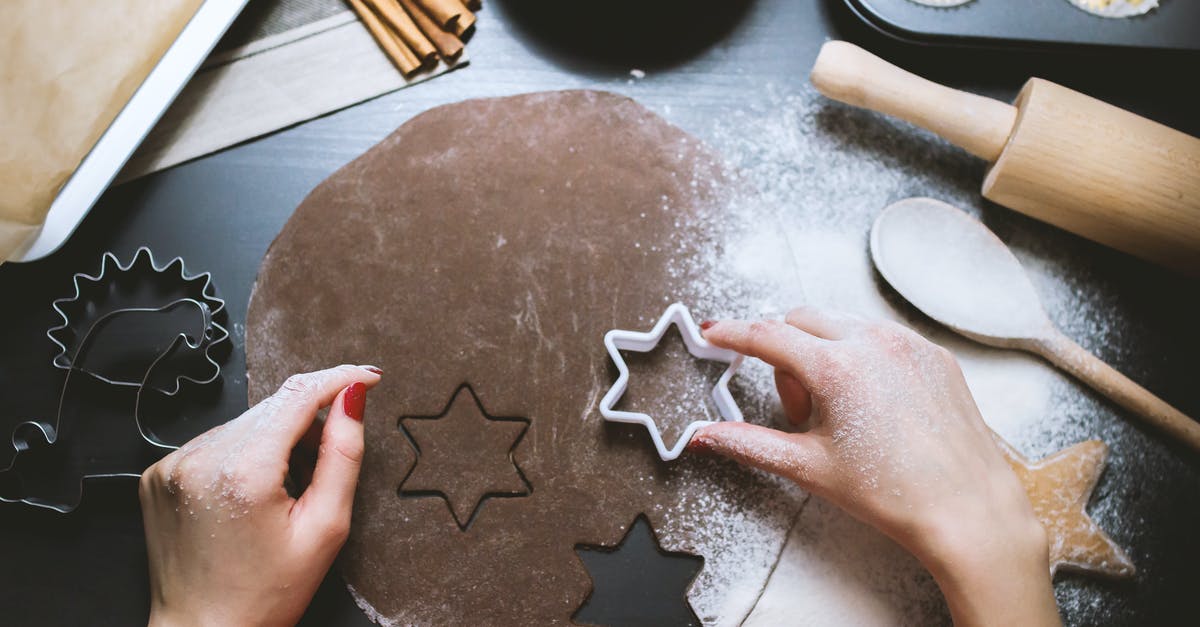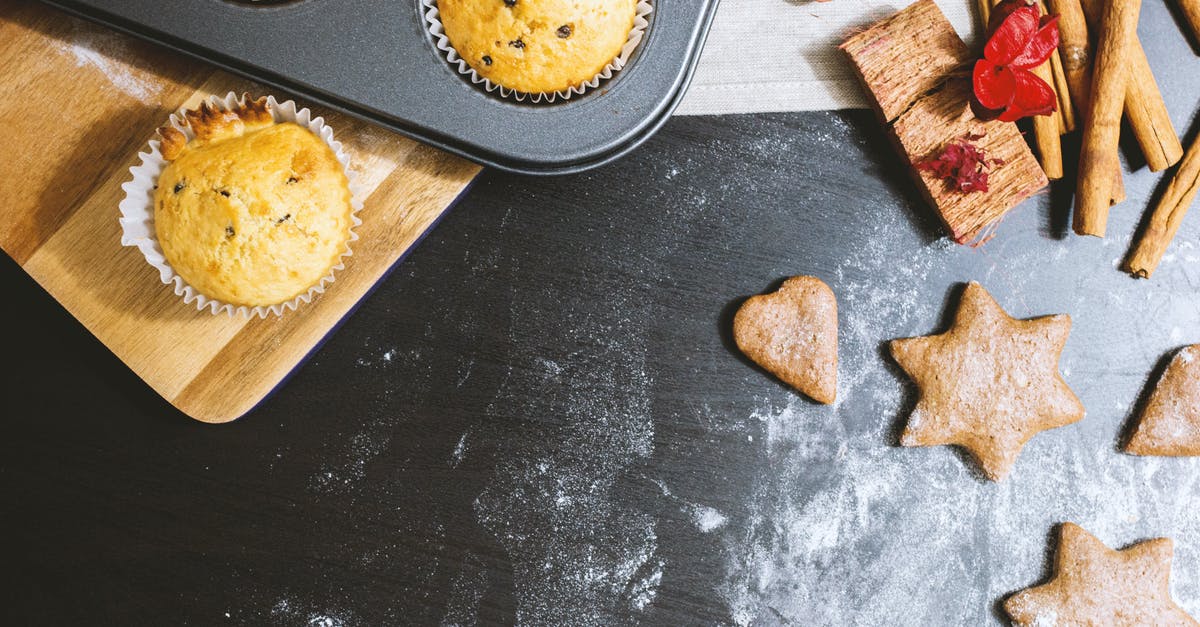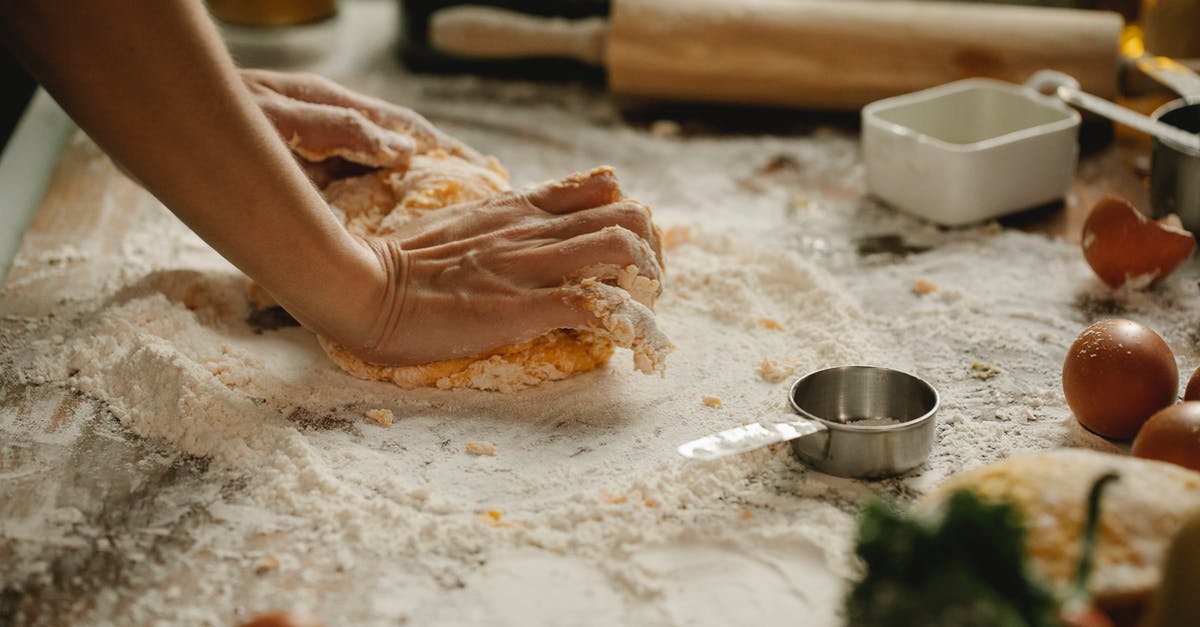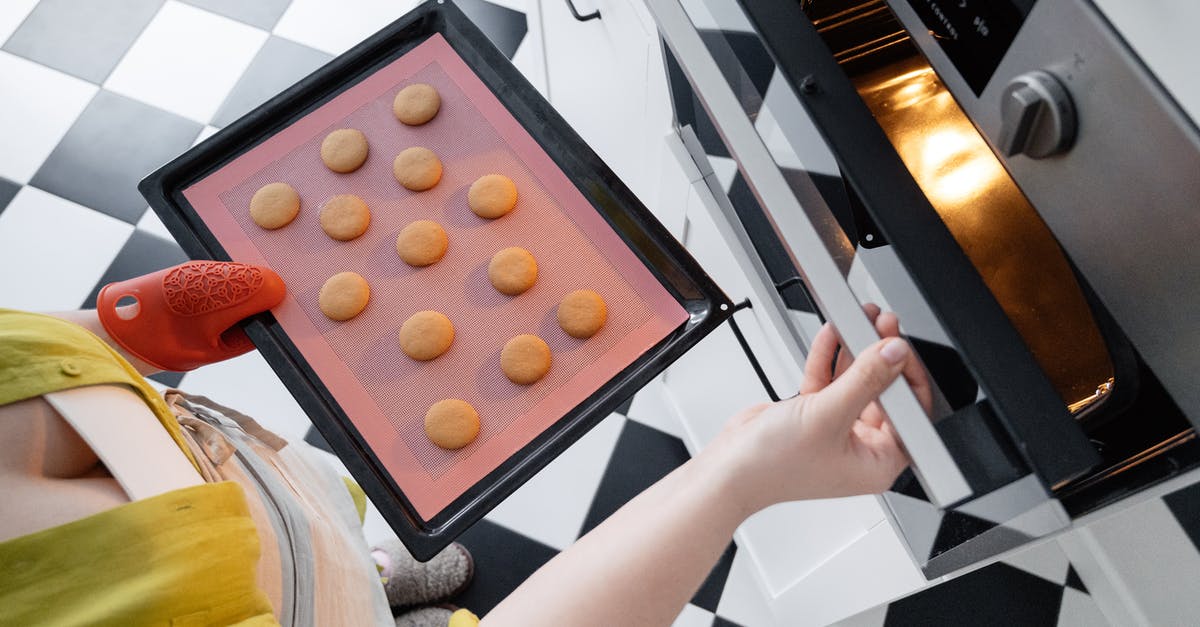What's the benefit of chilling my cookie dough before baking?

I'm making some chocolate crinkle cookies, and one of the recipe steps is to refrigerate the dough at least four hours before baking.
Does this cause any changes in the dough such as something to do with gluten formation (or relaxation), or is it largely about getting a good consistency for the cookie to properly shape itself while baking? Should I be doing this with pretty much any cookie I bake? Is the four hours important, or am I looking for a temperature rather than a time limit?
Best Answer
Anecdotally, the difference is in the spread.
When tested, this is confirmed, along with it affecting the browning and the texture.
When you start with cold dough, the outer edges of the cookie start to firm up before the middle has warmed up a lot. This means it will start crusting (and browning) before the fat in the middle starts to spread out. The cookies are taller and have a smaller footprint and (if not overbaked) will be nicely chewy in the center.
There's a really nice guide about it on King Arthur Flour's blog.
The cookies pictured above are the same size, weight-wise. But look at the difference in spread – the cookie dough that was refrigerated spread less.
The cookie dough without refrigeration also browned less.
As you can see, there's a big difference even in only a thirty minute time in the fridge and again, a nice improvement after sixty minutes.
The author compared cookies as old as ten days but noted diminishing returns the longer they waited.
What's happening? Well, the blog states:
1. Chilling cookie dough controls spread.
Chilling cookie dough before baking solidifies the fat in the cookies. As the cookies bake, the fat in the chilled cookie dough takes longer to melt than room-temperature fat. And the longer the fat remains solid, the less cookies spread.
In addition, the sugar in the dough gradually absorbs liquid. If you bake the dough immediately, before sugar has a chance to absorb much liquid, that liquid remains “free” in the dough, and promotes spread. Think of this in terms of thin vs. thick pancake batter: the more liquid in batter, the more it spreads, right? Same with cookies.2. Chilling cookie dough concentrates flavor.
As the dough chills, it gradually dries out, concentrating the flavors of all the ingredients. Think of watered-down lemonade, vs. lemonade with less water: dull flavor vs. bright, tangy flavor. Same with cookies.
Something else happens as the dough rests: part of the flour breaks down into its component parts, including a simple carbohydrate, sugar. Thus, since sugar is a flavor enhancer (like salt), the cookies may taste more flavorful, as well as sweeter.3. Chilling cookie dough changes texture.
Again, it’s not really the chilling, but the dough gradually drying out, that’s responsible for texture change. The drier the dough, the more concentrated the sugar. And a higher percentage of sugar creates cookies with chewy/crisp (rather than soft/doughy) texture.
So, allowing the ingredients to rest lets them absorb some of the liquid, gives you less spread, taller, browner cookies. Now, in your case, browning probably isn't an issue, but you do want a nice chewy texture, which chilling your batter will do. Based on the article, you probably don't have to wait the full four hours but it might be interesting to give it a try and see how your cookies change after baking at different times to see if you can only wait an hour rather than four.
Note, because it's not only the chilling factor that affects your outcome, it's not only about getting the dough cold, so it probably wouldn't speed up the process with identical outcomes if you shaped the cookies before chilling the dough. If the water absorption is a big part of it, the surface area to volume ratio isn't going to affect the speed (probably).
This blog was specifically about chocolate chip cookies... your cookies pose an additional concern when it comes to spread. If the dough is really sticky, rolling the dough into a ball and into the powdered sugar will be difficult when the dough is warm. Chilling it will make the dough more manageable.
Plus, with the powdered sugar coating, you want to reduce spread so that you get the nice crevasses without them being too huge. If the cookie spreads less, you'll get narrower breaks in the powdered sugar. It may also prevent the dough from absorbing the powdered sugar so that you get the good contrast you're looking for.
Pictures about "What's the benefit of chilling my cookie dough before baking?"



Quick Answer about "What's the benefit of chilling my cookie dough before baking?"
Chilling cookie dough before baking solidifies the fat in the cookies. As the cookies bake, the fat in the chilled cookie dough takes longer to melt than room-temperature fat. And the longer the fat remains solid, the less cookies spread. In addition, the sugar in the dough gradually absorbs liquid.Is it better to chill cookie dough before baking?
Popping your dough in the fridge allows the fats to cool. As a result, the cookies will expand more slowly, holding onto their texture. If you skip the chilling step, you're more likely to wind up with flat, sad disks instead of lovely, chewy cookies. Cookies made from chilled dough are also much more flavorful.Does refrigerating cookie dough make a difference?
Refrigerating the dough allows the flour to fully hydrate, which (in addition to chilling the butter) helps to make the cookie dough firmer, says baker and food stylist Jason Schreiber, who recently published Fruit Cake: Recipes for the Curious Baker ($21.85, amazon.com).How long should you cool cookie dough before baking?
Anywhere from 24 to 72 hours. The longer you chill the dough, the more flavor will develop. The flour will also absorb more of the moisture so the thicker and chewier the final texture will be.Minecraft wait what meme part 129 realistic minecraft Allay
Sources: Stack Exchange - This article follows the attribution requirements of Stack Exchange and is licensed under CC BY-SA 3.0.
Images: JÉSHOOTS, JÉSHOOTS, Klaus Nielsen, SHVETS production

